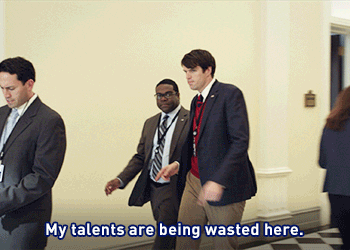Table of Contents
Introduction
I’m a big believer in the needs-meeting-solutions model of productivity. This means that I try to keep my work on task and focused on what’s actually important.
The work you do is the work. This sounds like a ridiculously obvious, mundane statement but it’s important to remember that our work is fundamentally different than the types of distractions you must deal with on a day-to-day basis.
It’s not always easy to disentangle yourself from work about work — but you can.

What is “work about work” anyway?
Anatomy of Work Index 2021 by Asana sought to answer this question: “How much time do we spend on work that doesn’t directly relate to our daily roles?”
More than 13,000 global knowledge workers were asked the same question. They defined work about work as all the tasks you do that do not correspond to your actual role. Those activities include communicating about work, searching for information, switching between apps, managing shifting priorities, and chasing the status of work. They’re typically tedious and take time away from work you’d rather be doing.
The Anatomy of Work Index was created to help companies identify areas where they could reduce their employees’ time spent on these activities so they could focus on what matters most—helping their customers.

How is work about work killing your productivity?
When it comes to productivity, one of the biggest obstacles is work about work.
If you’ve ever had a day where you felt like your brain was fried from thinking about all of the different aspects of your job—from reporting to doing research on a new product launch—you’ll know what I’m talking about.
It’s easy to get bogged down by all the things you “should” be doing. You have a long list of tasks and responsibilities, and there are many things that fall outside the job description that is expected of you as well. It can feel like just when you get one thing done, another pops up to take its place. It’s especially difficult if a lot of this stuff is work about work; it’s not directly related to your job but still, occupies time and energy better spent on what you’re being paid for. You may also find yourself spending time worrying about work while at home or on vacation because it wasn’t finished before leaving on vacation or even when leaving the office every day!
While we’ve all had moments where our inbox becomes unmanageable because of this type of stress overload, there are some straightforward ways to avoid getting sucked into these rabbit holes:
- Schedule: As a first step, create a schedule for doing them. This will help you limit their time and make sure they don’t take over your day. I’ve found that having dedicated times during the week works best (even if only 15 minutes), so that it doesn’t become an afterthought or something you do in between other tasks.
- Limit: Once you’ve set up a schedule, limit the amount of time spent on each activity per day—and stick to it! If possible, try breaking down each one into smaller pieces so that the task isn’t overwhelming and won’t take up too much of your day (we’re talking no more than 5-10 minutes).
- Tools: There are also plenty of tools out there designed specifically for keeping track of how much time is spent doing “work about work” so be sure to check them out when setting up this routine!
Work about work can be eliminated to increase productivity.
If you think about it, work about work is a waste of time.
When we’re working, we often think about what else we want to get done that day or week. We might think about the things we could be doing if only someone would give us more time. Or maybe we’re thinking about how much fun it was when we last took an afternoon off for ourselves or a vacation with family members. But none of those thoughts are productive ones!
In fact, most people agree that work should be done because it needs to get done and not because they want to do it (or because they feel like they have no choice). If there’s one thing everyone can agree upon when it comes to productivity issues, there’s no shortage of advice as far as what not do when trying to increase efficiency at your job goes: don’t spend too much time on non-essential tasks; don’t make mistakes; don’t procrastinate; don’t multitask…the list goes on and on! The problem here is not just one thing but rather everything combined together into one giant pile of wasted effort spent trying instead of actually getting stuff done.
How can ProofHub help you reduce work about work hours?
There are a number of ways you can reduce the amount of time you spend on work about work. While we’ve covered some of these ideas in other sections, here are some more actionable ways to cut down on unnecessary tasks:
- Developing a clear and detailed workflow that’s easy to follow. This will help you delegate tasks and make sure they get done. Manage your workflow and ensure everything goes smoothly once it’s assigned.
- Create a clear and detailed to-do list with deadlines for each item so it’s easy for everyone involved to see what needs doing next and when it needs doing if it’s not done already (if possible).
- Managing your task lists efficiently so nothing gets lost in the mix between tasks due today versus tomorrow versus next week versus sometime soon depending on what stage they’re at now (maybe).
Looking for the newest productivity tools to lighten your workload? Visit ProofHub right now!
